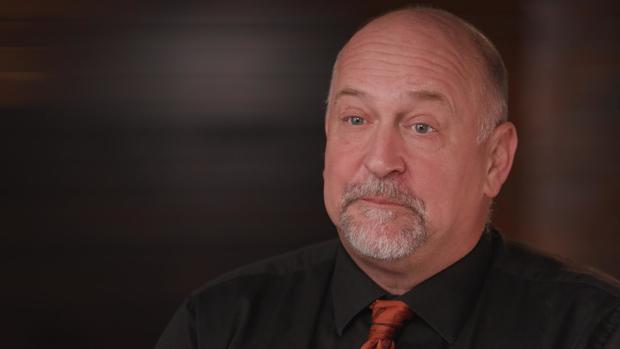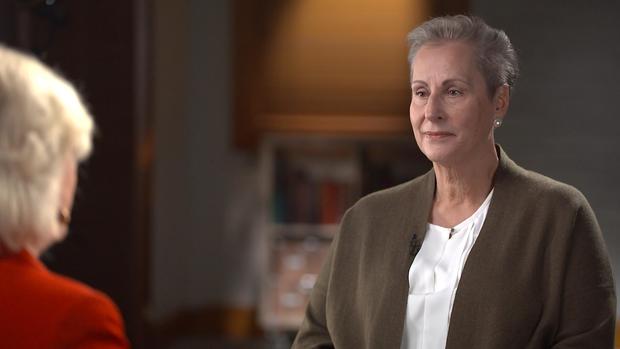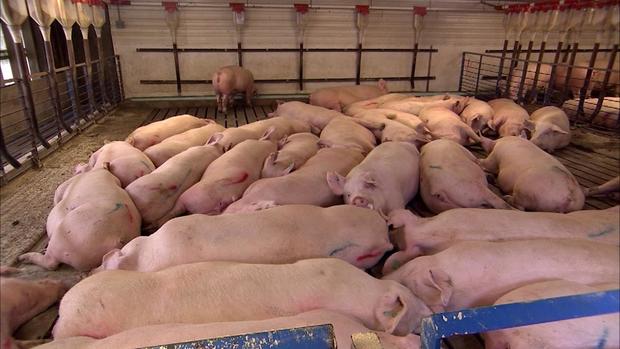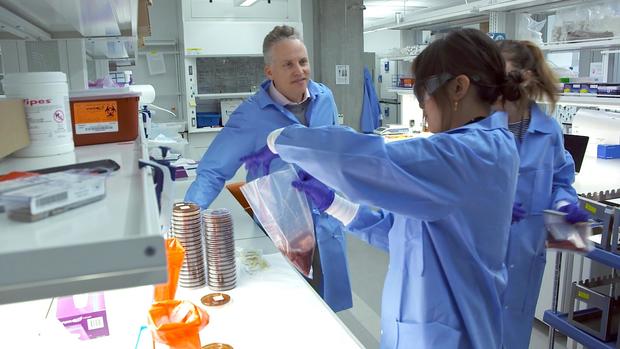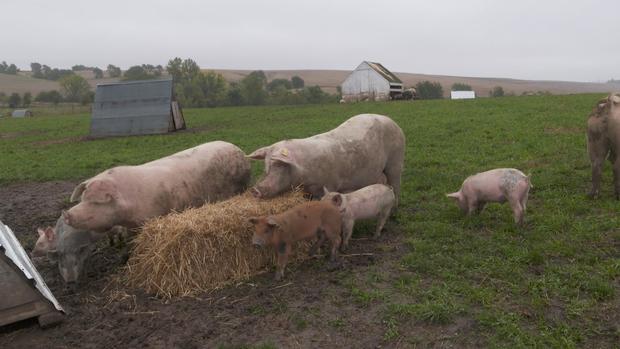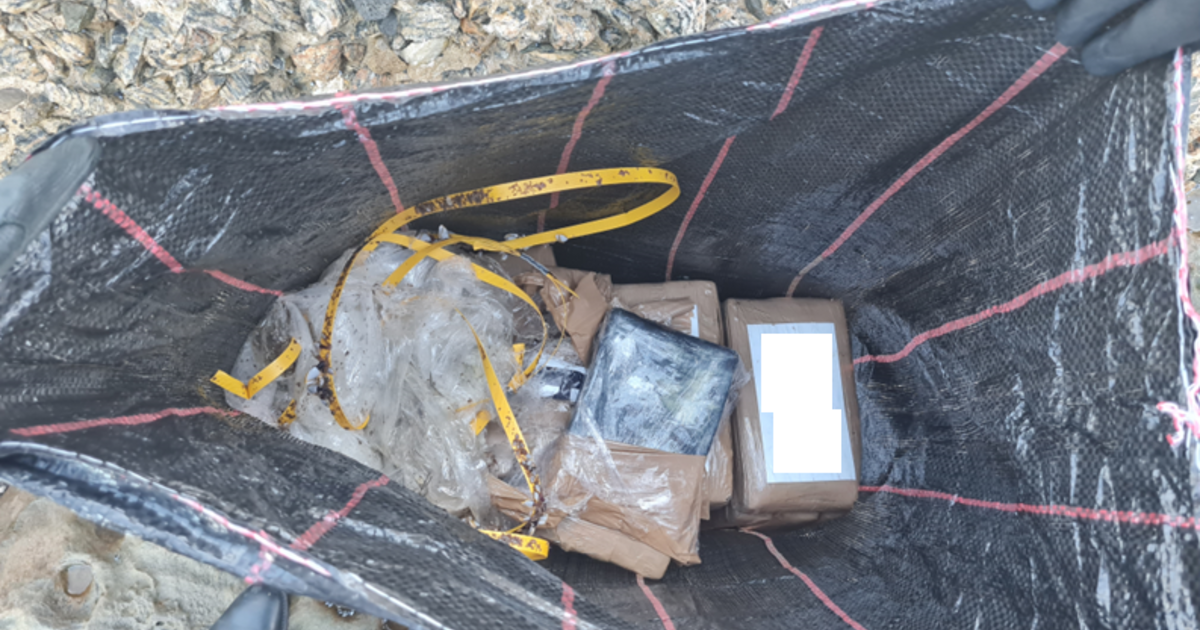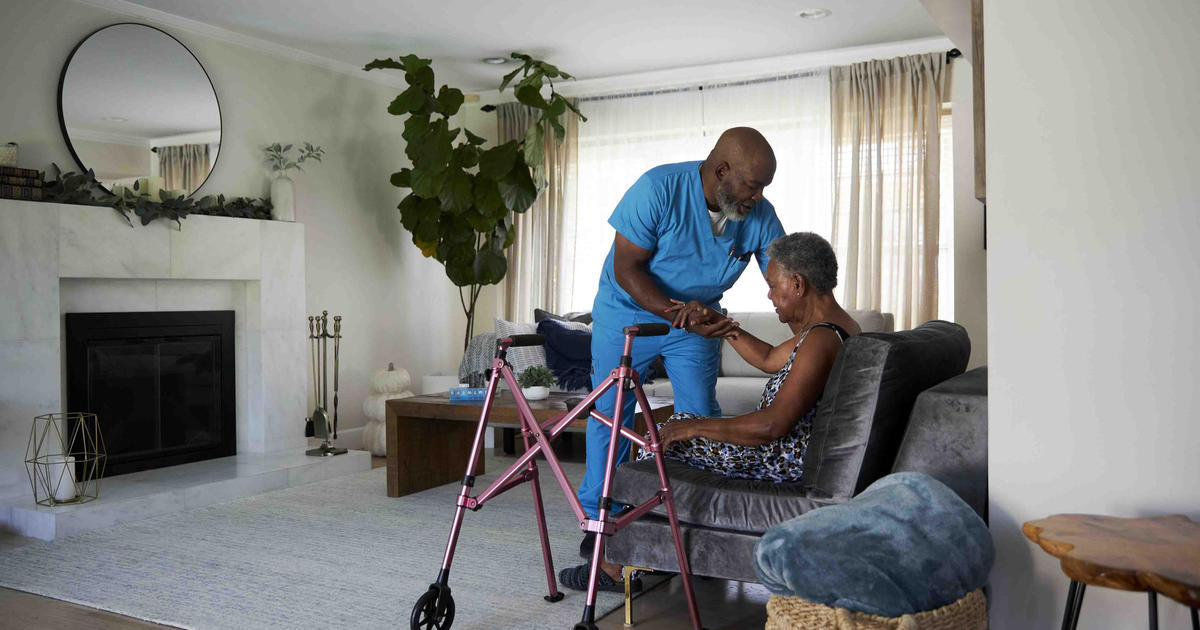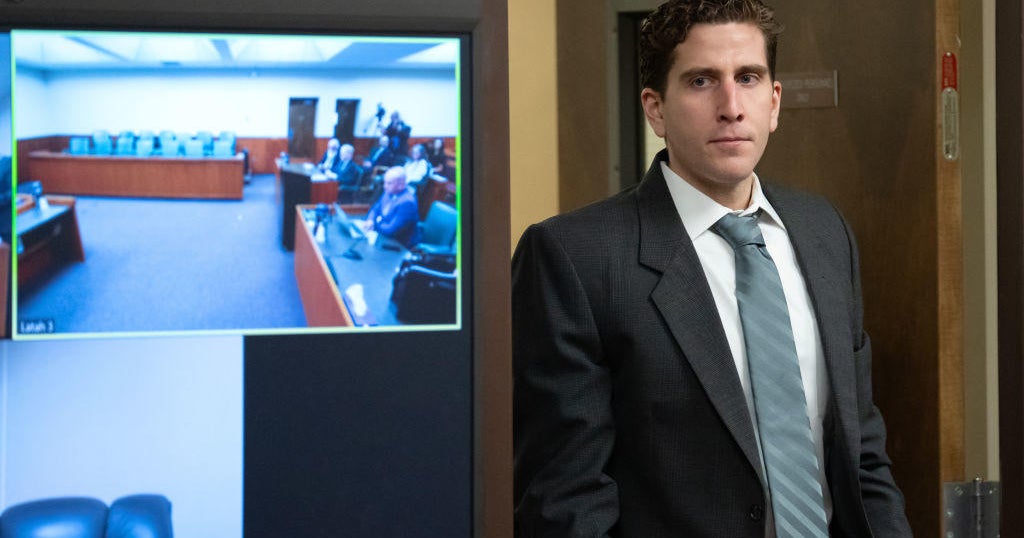Is overuse of antibiotics on farms worsening the spread of antibiotic-resistant bacteria?
Most of us know by now we shouldn't overuse antibiotics so we don't end up with bacterial infections that the drugs can't treat. But it's interesting to know that more than 12 million pounds of medically important antibiotics sold in this country are not for use in humans; they're for livestock. And the antibiotics are driving the spread of drug-resistant bacteria in the animals that can get passed on to us through food if we don't cook and handle it properly.
Yet it's almost impossible to get on the farms to conduct inspections and stop infection outbreaks from spreading, even for public health officials.
Dr. Scott Lindquist: My job is to look for outbreaks. When I see them, I describe them and I'm supposed to stop them. Very simple.
In 2015, Washington state epidemiologist Scott Lindquist investigated an outbreak of antibiotic resistant salmonella tied to roaster pigs.
Dr. Scott Lindquist: Our estimate is anywhere between 3000 to 4000 people were probably ill with this entire outbreak. But we had 175 folks that had positive cultures that--
Lesley Stahl: Meaning that they were severely ill.
Dr. Scott Lindquist: Yeah.
Severely ill, with dozens hospitalized, because the salmonella was resistant to antibiotics. Lindquist traced the cause of the outbreak to a slaughterhouse called Kapowsin Meats.
Dr. Scott Lindquist: We come in and we find the bacteria, essentially everywhere. Drains, utensils, the truck that transports them from the farms.
Lesley Stahl: Was it the slaughterhouse's fault?
Dr. Scott Lindquist: I have no idea and I don't say that lightly. I've only gone back as far as the slaughterhouse. So I want to go back to the farms and I wanna sample the pigs at the farm to say, "Do they have this bug, this exact DNA fingerprint, before they came to the slaughterhouse?"
The farms he wanted to visit were in Montana, where the slaughterhouse told him the pigs came from. But to his surprise, Lindquist, who was conducting the investigation, was flatly turned down.
Lesley Stahl: Did you express your anger?
Dr. Scott Lindquist: There were a couple heated phone calls. I was pretty well known for exerting my strong opinion about getting out to the farms, but in the end I was thwarted.
Thwarted, he says, by the National Pork Producers Council, the lead lobbying group for the $23 billion pork industry. They sent Lindquist a letter denying him access to the farms, saying, "I know that you do not want any inadvertent negative consequences to farms as a result of this proposed on-farm sampling." It was signed by chief veterinarian Liz Wagstrom.
Dr. Liz Wagstrom: The farmers that had been asked to provide samples declined to be-- have samples taken on their farms. And we supported that decision.
Lesley Stahl: Why wouldn't the farmers want to find out where this started, where the salmonella issue-- outbreak started? Why wouldn't you want to find out where it started?
Dr. Liz Wagstrom: By the time they wanted to go to the farm, it was five months after the first case. At this point in the outbreak, if it were found on the farms, there was no way to tell if it started at the farm or if it started at the plant and the truck had brought it back to the farm.
But Scott Lindquist said it wasn't too late for his investigation to get information that might slow the outbreak, which was continuing.
Dr. Scott Lindquist: I think they didn't want me to make the farms look bad. I actually even offered to code the farms, call them farm A, B, C and D so it wouldn't be something that would, in my records, would even name the farm but it would give me the information did their pigs have this bacteria? And I got absolutely none of that.
Lesley Stahl: He had gone out of his way to assure you and the farmers that he wouldn't even name them.
Dr. Liz Wagstrom: What the farmers were concerned about was the discussion that, um, in his plan, they wanted to go to the other plants that tho-- those farmers sent pigs to.
Lesley Stahl: Exactly.
Dr. Liz Wagstrom: And those farms could be easily identified just by their state of origin.
When we asked Liz Wagstrom to help us visit a hog farm, she raised a surprising concern.
Lesley Stahl: Biosecurity?
Dr. Liz Wagstrom: Biosecurity. If I were to go to pig farm, as a veterinarian, I'll take a shower. I'll shower in and use shampoo so I don't carry any diseases into the barn.
Lesley Stahl: What if we agreed to sanitize ourselves to the ultimate degree, go through all the guidelines you just described? Could we get-- would you take us onto a farm?
Dr. Liz Wagstrom: You know I'm-- I'm not a farmer. I would have to talk to farmers-- our communications people would have to determine, you know, if they can find somebody willing.
Lesley Stahl: And we'll-- we'll go with any guidelines, any shampooing, anything you want us to do.
Dr. Liz Wagstrom: I can see if they can make that happen. And-- I'm sorry, that's the best I can do.
It didn't happen. We never got permission to go on a farm, but the council did give us footage.
It wasn't just us, even federal inspectors have trouble getting on farms. They are not allowed on a farm to look for bacteria that make people sick without the farmer's permission.
Dr. Lance Price: We have this black box of what's happening on the farm, right? So we-- we don't have a way of tracing tainted products all the way back to the farm. We just don't, we don't track that. We don't keep the records.
Dr. Lance Price is a microbiologist at George Washington University and a leading expert in drug-resistant bacteria.
Here in his lab, Price and his team test grocery store meat for antibiotic resistant bacteria as part of an ongoing study.
Dr. Lance Price: So these-- these bacteria, we consume them with the meat. Those bacteria then get into our system and they cause infections. Then, the infections, because they're already resistant to antibiotics, the doctors don't have any antibiotics to treat those infections.
Lesley Stahl: But can you cook these pathogens out of pork?
Dr. Lance Price: You can. The problem is that when you bring that package into your house you're bringing a package, a raw package of meat. When you open that up, you have now just potentially released bacteria pathogens, potentially drug-resistant pathogens, into your kitchen.
Lesley Stahl: I mean, you don't hear that much about people getting salmonella or whatever.
Dr. Lance Price: Yeah. I mean, so, the-- you know, each year there are outbreaks of-- of drug resistant infections.
The pork council says, "The United States pork production system yields the safest, highest quality pork available." And, "U.S. pork producers adhere to rigorous government regulations."
Farmers started using antibiotics decades ago not only to fight disease, but to make animals grow faster with less food. Their use increased as farms got larger. Today most hogs are raised on big industrial farms that are owned by multi-billion dollar companies, some of them foreign.
Dr. Lance Price: You've got these big, in some cases, multinational companies, that are messing with our food safety system. But they hide behind this image of an American farmer. "Why can't we regulate the use of antibiotics on the farm?" "Oh, we've gotta protect the American farmer. That would be encroachment by the government." "Why can't we test these animals on the farm to see if they're carrying dangerous pathogens?" "Oh, that would hurt the farmer. We gotta protect the guy in the overalls." But this is not a guy in overalls. This is a guy in a suit with a Maserati, you know? I mean, this is-- these are-- these are big companies that we are protecting. And by protecting them, we're hurting ourselves.
Some small independent farms, like this one, don't use antibiotics. Here, the hogs are raised more on open spaces; and piglets stay with their mothers for nearly twice as long as on the industrial farms. But most American pigs today are raised on large farms with 5,000 animals or more, often housed in tight quarters.
Dr. Lance Price: Because the animals get sick under those conditions, cramming them together, stressing them out, they give them low doses of antibiotics all the time to try to prevent those infections.
Lesley Stahl: Well, wait. They create the situation that gives them stress. They give them antibiotics to deal with what they created. And then they get resistant? Is that the chain?
Dr. Lance Price: Yeah-- yeah, I mean, you-- you nailed it, right. So this is the-- it seems ridiculous on the surface right?
Lesley Stahl: What we've been told is that some of these farms take these pigs and just put them, tightly packed, into an area. And they're, they're so tightly packed that they get stressed And therefore they get preventative antibiotics.
Dr. Liz Wagstrom: That's a pretty common misconception. So when you're talking about crowding, that would be an improper stocking density. So--
Lesley Stahl: Yeah, but who can go find out? There's no oversight. These farms have somehow won the right to keep people off the farm to inspect. Am I correct?
Dr. Liz Wagstrom: Well, for one thing, we have no legislation around stocking density. So there is not a law that says--
Lesley Stahl: Exactly.
Dr. Liz Wagstrom: But the incentive for farmers to do the right thing is, is really high.
Lesley Stahl: There's no way to find out. I don't understand how the farmers got-- got this right to make sure we can't find out for sure.
Dr. Liz Wagstrom: Well, and we're trying to do everything we can to do the right thing. So that-- the concerns that you're expressing here are unnecessary.
In 2017, the Food and Drug Administration told farmers to stop using antibiotics in animals for growth purposes, but here's the loophole: they are permitted to use them for disease prevention, and there are no reporting requirements.
Lesley Stahl: Would you support a regulation that says farmers have to report how much they use antibiotics and for what?
Dr. Liz Wagstrom: I would support discussion around trying to figure out how to collect that data.
Lesley Stahl: If they had to report it, they'd have to report it.
Dr. Liz Wagstrom: Yeah. I work for farmers. And if it'd be a discussion among our leadership on whether we would support or not.
Microbiologist Lance Price thinks the agriculture industry has too much power over regulation policies and chafes specifically at a new USDA rule the industry pushed for that went into effect last month. It loosens some significant regulations at hog slaughterhouses, where inspectors are allowed. The USDA says it's modernizing the process, including requiring more microbial tests.
Dr. Lance Price: I don't see modernization. I see just straight up deregulation in an industry that you want regulated.
Lesley Stahl: What couldn't slaughterhouses do that they can do now?
Dr. Lance Price: Well what the regulation does is allows companies to set their own line speeds.
Lesley Stahl: You're saying that the speed of these carcasses going through can be faster?
Dr. Lance Price: Right. So today it's 20 or almost 20 animals per minute. Now there's no limit.
Lesley Stahl: But people are supposed to be inspecting them on this line?
Dr. Lance Price: Right.
In the old system, qualified USDA inspectors examine each and every carcass, looking for disease and contamination. Slaughter houses can opt into the new system or keep the old one.
The USDA declined our request for an on-camera interview, but it said in a statement that under the new system, government line inspectors are still expected to conduct an "…inspection of… each carcass" as well as "slow or stop the line" if they see problems.
But the number of government inspectors on the line is being reduced by 40%. To compensate for the loss, the USDA is adding high-level federal inspectors to enforce the plant's sanitation and safety procedures.
Some of the job of examining the carcasses will be taken over by plant employees.
Lesley Stahl: Are they being trained?
Dr. Lance Price: This is one of the things that-- that I was shocked by, when I saw the new regulation. Is that they're saying "Hey, we're gonna-- we're gonna throw this back to the company but we're not going to mandate any training for these people. So we're going to throw it to the company, and have them figure it out.
Produced by Sarah Koch. Associate producer, Chrissy Jones. Broadcast associate, Maria Rutan. Edited by Richard Buddenhagen.
